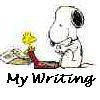Latest reads
–The Masks of Wielstadt, by Pierre Pevel (French): Pierre Pevel is more known to Anglophone readers as the man who wrote The Cardinal’s Blades (aka a mix of fantasy and adventures à la Dumas). This is a much earlier work, first published in 2002 and the second book of a trilogy (the first book appears to be out of print, sadly). It is 1623, and the Thirty Years War is spreading throughout the Holy Roman Empire, forcing everyone from the burghers to the knights templar to choose their sides. The city of Wielstadt, protected by its dragon, has so far avoided the worst of the conflicts. But no more–for a demon in human guise has come to Wielstadt, determined to put the city upside down for its own nefarious purposes. It falls to Sir Kranz–a man who has already died once–to foil its plans.
It reads very much like Dumas, transposed to the Holy Roman Empire and with a side dash of magic. The tale actually follows several characters in addition to Kranz–his aged friend who owns a bookshop, a ruffian in the service of a few too many people, and a few more besides. It moves at a good clip with the requisite number of fights, murders, dashes across the countryside, and so on. But the universe is really well depicted, with a bite I all too often find lacking in a lot of fantasy; and it’s really refreshing to have a devout man like Kranz as a main character: for him, religion is an integral part of his worldview, and he makes the appropriate space for it in his life. Again, not something I often see in fantasy. And there are lots of cool ideas in there–the sacred blade that can only be drawn by those that have died once, the demon assassins with pitted metal masks, and the interplay between the various societies, from the Knights Templars to the beggars. All in all, a pretty good read, and I’m curious to track down the other books.
And I have to say it’s only in a French book that you’d have lengthy footnotes about historical accuracy; and whole chapters of exposition on various subjects (Renaissance cryptography, history of secret societies). Kind of refreshing, actually, if a little surprising.
–Acquaintance: the first episode in the Adventures of Sherlock Holmes and Doctor Watson, mixing elements from A Study in Scarlet and The Speckled Band. This was much more fun to watch with the BF by my side: he couldn’t understand more than snatches of the Russian, but he was quick to point out to me all the places where the movie either made fun of foreigners or fell into propaganda (a scene in particular, barely changed from its original in A Study in Scarlet, has become a scathing indictment of Sherlock Holmes as a capitalist materialist–as opposed to the stalwart and dreamy Watson). Again, pretty interesting, albeit I guess not in the way the original makers intended it.
Meanwhile, in writers’ land, crits are coming in for Harbinger. Some stuff looks to be broken, and some not. I’ll have to draw a battle plan for how to revise the book, but right now I’m soaking it all in (and working simultaneously on non-fiction and two short stories).
